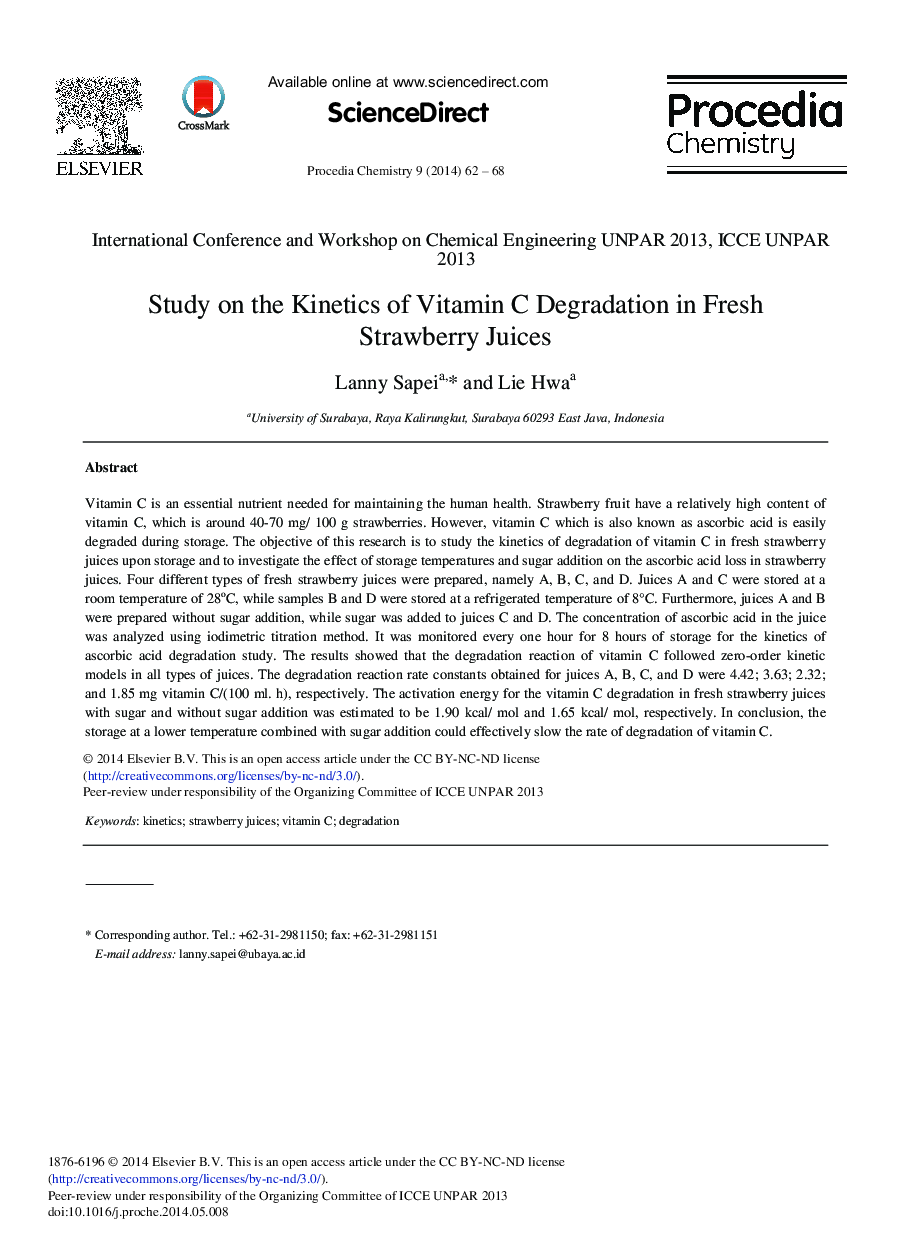| Article ID | Journal | Published Year | Pages | File Type |
|---|---|---|---|---|
| 240016 | Procedia Chemistry | 2014 | 7 Pages |
Vitamin C is an essential nutrient needed for maintaining the human health. Strawberry fruit have a relatively high content of vitamin C, which is around 40-70 mg/ 100 g strawberries. However, vitamin C which is also known as ascorbic acid is easily degraded during storage. The objective of this research is to study the kinetics of degradation of vitamin C in fresh strawberry juices upon storage and to investigate the effect of storage temperatures and sugar addition on the ascorbic acid loss in strawberry juices. Four different types of fresh strawberry juices were prepared, namely A, B, C, and D. Juices A and C were stored at a room temperature of 28 °C, while samples B and D were stored at a refrigerated temperature of 8 °C. Furthermore, juices A and B were prepared without sugar addition, while sugar was added to juices C and D. The concentration of ascorbic acid in the juice was analyzed using iodimetric titration method. It was monitored every one hour for 8 hours of storage for the kinetics of ascorbic acid degradation study. The results showed that the degradation reaction of vitamin C followed zero-order kinetic models in all types of juices. The degradation reaction rate constants obtained for juices A, B, C, and D were 4.42; 3.63; 2.32; and 1.85 mg vitamin C/(100 ml. h), respectively. The activation energy for the vitamin C degradation in fresh strawberry juices with sugar and without sugar addition was estimated to be 1.90 kcal/ mol and 1.65 kcal/ mol, respectively. In conclusion, the storage at a lower temperature combined with sugar addition could effectively slow the rate of degradation of vitamin C.
